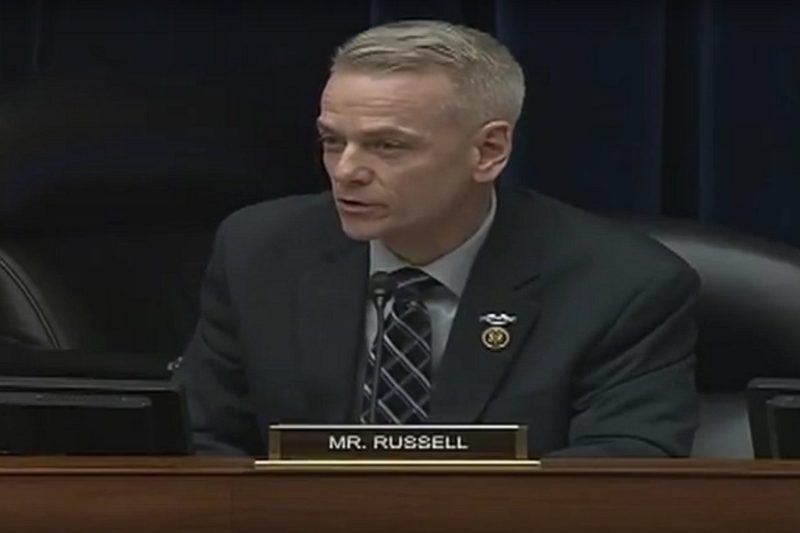House Republicans Move to Reverse Federal LGBTQ Protections
D’Arcy Kemnitz, executive director of the National LGBT Bar Association, said it’s “frankly shocking” lawmakers would consider these types of provisions after the backlash that North Carolina legislators are facing from businesses after passing HB 2.

Republicans on a U.S. House of Representatives committee are using the fiscal year 2017 defense authorization bill to undo President Obama’s LGBTQ anti-discrimination measures for federal contractors.
Rep. Steve Russell (R-OK) offered an amendment to roll back the protections after midnight last Thursday during a marathon markup session of the National Defense Authorization Act (NDAA) (HR 4909). The amendment would hold federal contractors accountable to the Civil Rights Act of 1964 and the Americans with Disabilities Act of 1990.
However, the protections and exemptions under these federal laws do not apply to LGBTQ people, effectively undoing Obama’s 2014 executive order to prohibit federal contractors from discriminating based on sexual orientation or gender identity.
Obama did not bow to pressure from religious leaders to include broad religious exemptions.
Russell’s one-paragraph amendment would apply to any “religious corporation, religious association, religious educational institution, or religious society” that receives or offers a federal contract, subcontract, grant, purchase order, or cooperative agreement. Democrats on the House Armed Services Committee said the language could extend to private contractors.
“The way this amendment is written, it doesn’t matter if you’re a religious organization,” said Rep. Adam Smith (D-WA), the committee’s ranking member.
Rep. Scott Peters (D-CA) called the attempt “misguided.”
“The ambiguity of this exemption is dangerous with this broad definition of religious organization,” he said during the markup session. “I urge my colleagues, all of them, to vote against this dangerous amendment and in so doing, stand on the side of equality and against discrimination.”
Russell received a waiver from both the GOP-controlled Oversight and Government Reform and the Judiciary committees to proceed with the amendment, his office confirmed. Waivers are needed for amendments that are not germane to an underlying bill. As written, the amendment would apply to all government contractors, not just those in the defense sphere.
“If signed into law as part of the NDAA, many federally funded institutions could refuse to hire, or even outright fire, individuals based on sexual orientation and gender identity. Under the Russell amendment, for example, a transgender custodian at a major hospital receiving federal funding could be fired merely due to their gender identity,” wrote Sarah McBride, campaigns and communications manager for the LGBT Research and Communications Project at the Center for American Progress, along with Aaron Ridings, the project’s associate director. “Similarly, some major institutions could refuse to grant health insurance to the legally married spouse of a gay or lesbian employee.”
The amendment passed 33-29 in a party-line vote. Two Republicans, Reps. Frank LoBiondo (R-NJ) and Joseph Heck (R-NV), voted against it. Rep. Thomas MacArthur (R-NJ) did not cast a vote.
As part of a package of amendments on military personnel, the committee unanimously agreed to Rep. Jackie Speier’s (D-CA) proposal to allow transgender veterans to change their names on their discharge documents. Republicans blocked Speier’s attempt to lift a ban prohibiting military facilities from providing on-site abortion care.
Lawmakers from both sides of the aisle routinely offer substantive policy changes to the defense bill because it is considered must-pass legislation—and a vehicle to advance their priorities to a vote in a sharply divided House. Russell used the process to allow federal contractors to discriminate against their workers, Speier’s office told Rewire in an interview.
Russell’s amendment is not unprecedented. The defense bill has long attracted discriminatory measures, said Lanae Erickson Hatalsky, president of Q Street, the professional association of LGBTQ lobbyists and public policy advocates and those working for LGBTQ equality.
“I don’t think this is new in any way,” Erickson Hatalsky said. “What I do think is new is context around it.”
Erickson Hatalsky pointed to widespread business opposition to anti-LGBTQ measures and a political landscape that now puts Republicans, not moderate Democrats, in a bind for supporting such policies.
Harper Jean Tobin, director of policy for the National Center for Transgender Equality, said Russell’s amendment marked a departure from more recent standard operating procedure on the defense bill. In this Congress, the House has had the “good sense” to refrain from targeting the civil rights of LGBTQ people, even as measures accumulate at the state and local levels, Tobin said in an interview.
“The Russell amendment passing committee is a new development in that sense,” she said. “It’s very disappointing to see something like this, that while its language is very vague, it’s clearly aimed directly at promoting discrimination against our community.”
D’Arcy Kemnitz, executive director of the National LGBT Bar Association, told Rewire that it’s “frankly shocking” lawmakers would consider these types of provisions after the backlash that North Carolina legislators have faced from businesses after passing HB 2. Business leaders have also opposed Mississippi’s anti-LGTBQ measure, known as HB 1523.
“Businesses like PayPal and Deutsche Bank have pulled out of expansion plans and corporations like Apple, IBM, Citibank, and Starbucks have all voiced opposition to such laws,” Kemnitz said. “Nevertheless, we are confident that President Obama, given his vocal support of the LGBT community and disapproval of laws such as HB 2, would veto any type of legislation that includes these types of amendments.”
Before a final defense bill reaches the president’s desk, a conference committee of House and Senate lawmakers would have to meet and reconcile the differences between their versions. The Senate Armed Services Committee’s markup is scheduled for May 11.
Speier will likely serve on the conference committee and will fight for what she wants—and doesn’t want—to keep in the legislation, according to her office.
